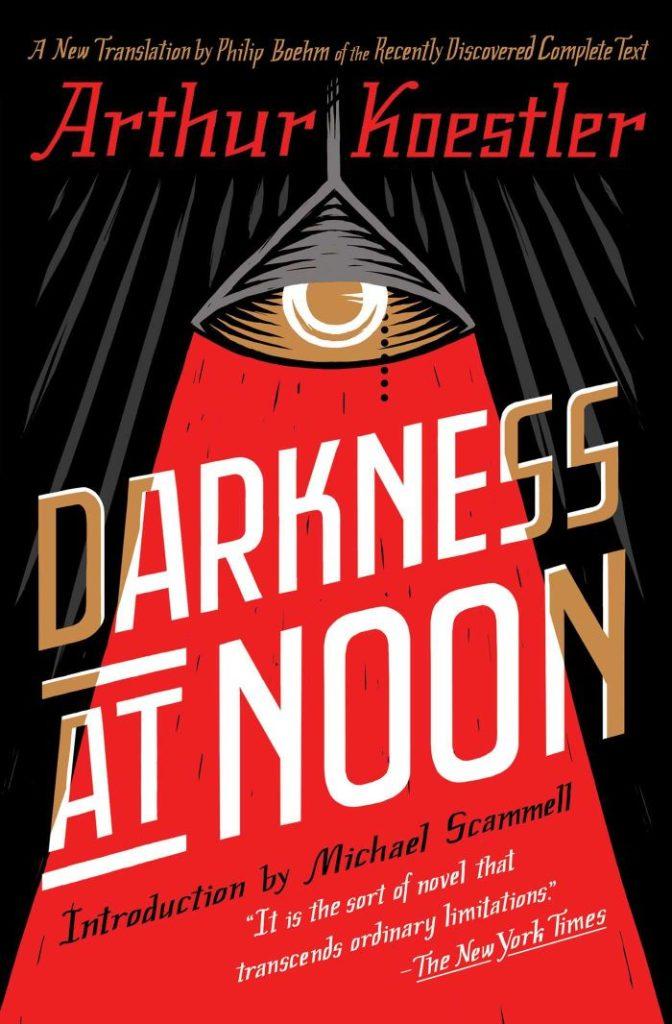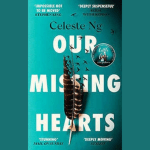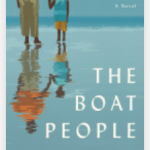
 Darkness at Noon by Arthur Koestler
Darkness at Noon by Arthur KoestlerMy rating: 5 of 5 stars
I grew up in a house filled with books. One I remember seeing on the shelves was Arthur Koestler’s Darkness at Noon. I don’t think I ever took it off the shelf when I was a child, but the sight of it flashed back into memory when I recently came across the book while researching my upcoming novel set in revolutionary and civil war era Russia. Darkness at Noon is a powerful look at idealism turned sour, and the dangers of excessive faith in one — any one — way of looking at the world.
The story follows long-time revolutionary Rubashov, who has just been arrested and imprisoned for allegedly plotting against “Number One” – a clear allusion to Stalin. We follow him as he ruminates on what brought him to this point, and as he struggles to decide whether to “confess” to the made-up counter-revolutionary crimes of which he is accused.
Although there are clearly prisoners being tortured for confessions, his interrogators feel that, as someone who has endured prison and torture previously, he will be unlikely to give in to their demands using traditional torture techniques. Instead they focus on the psychological – using reasoned argument to convince him that if he still believes in what he spent 40 years fighting for, he should confess. Central to the debate is whether the end truly does justify the means.
It is an interesting debate, particularly as he had, for so long, convinced himself that all sacrifices were worth it in order to build a workers’ paradise. One of his interrogators, a former colleague in the revolutionary struggles, argues for “a kind of mathematical compassion. [One] is forever damned to do what he loathes the most: become a butcher in order to stamp out butchery, sacrifice lambs so lambs will no longer be sacrificed, whip people so they will learn not to let themselves be whipped, eradicate all his moral impulses in the name of a higher moral, and court humanity’s hatred because he loves humanity so…”
Although the book was heralded as a masterful piece of anti-Communist literature after its release in 1940, I was struck reading it now by how many of its arguments serve as a powerful warning about what is going on in the United States and elsewhere today. For example, while in prison Rubashov tries to develop a theory to explain what when wrong with the Revolution. Because he is writing an academic-type paper, this excerpt is a bit tougher to wade through than most of the book, which flows easily. But it is striking in its explanation of the anti-science sentiment we’ve seen, particularly since the Covid pandemic hit.
“The degree of individual freedom a nation is able to attain and retain depends on the degree of its political maturity… The political maturity of the masses does not follow the same constantly rising curve of a maturing individual… [It] depends on their ability to discern their own interest, which presupposes a knowledge of the process of product and the distribution of goods. … Every technical advance leads to a further complication of the economic framework, to new factors, new connections that the masses are at first unable to comprehend. And so every leap of technical progress brings with it a relative intellectual regression of the masses, a decline in their political maturity. At times it may take decades or even generations before the collective consciousness gradually catches up to the changed order and regains the capacity to govern itself that it had formerly possessed at a lower stage of civilization.”
It is not a comforting thought that it will probably “take decades or even generations” for us to get back to what some of us like to think of as sanity, but it is credible. And given the pace of technological change we don’t really have the luxury of decades to adapt to each new revolutionary change. (Chat GPT anyone?) He goes on to argue that each “volatile leap of progress – for example, the invention of gunpowder or the mechanized loom – again places the masses in a condition of relative immaturity and makes it possible or necessary for the establishment of a new authoritarian regime.”
I couldn’t help thinking of Trump (to say nothing of some of our own political party leaders here in Canada) when I read “In periods of relative immaturity only demagogues manage to invoke the “higher reason” of the people.”
I also thought of Elon Musk and the other tech gods when I read, “History is by definition immoral; history has no conscience. Trying to steer it by the maxims of a Sunday sermon means leaving everything the way it is and putting a spoke in the wheel of progress.” So say those who feel that new GPT technologies should progress unimpeded. I would argue that we shouldn’t put a spoke in the wheel of progress, but perhaps a set of training wheels – regulation — would be wise.
I highly recommend this thought-provoking book. I found it a fast read because of its ideas and beautiful writing. Not only the philosophical discussions, but the sense of truly being inside the head of a political prisoner. What is it like to live in isolation in a cell that is six and a half paces in the longest direction, knowing that you are almost certainly living out your final days? How do prisoners in isolation exchange messages? What does that final march down the corridor to what you assume will be the site of your execution feel like? Koestler does a brilliant job of putting us inside the prisoner’s head. Having spent time as a political prisoner himself no doubt helped. That said, Darkness at Noon isn’t a plot-heavy page-turner. If that’s what you are looking for, there are probably books you’d enjoy more. But if you want a deeper understanding of where our world has been and may currently be heading, this is a powerful guide.
View all my reviews
[The cover I remember from my childhood is the one Goodreads shows. The book was originally published based on an English translation done by Koestler’s girlfriend at the time he wrote the book. The original German manuscript was lost. Recently, though, the carbon copy of the original was found, so the new Simon & Shuster version — the one with the red and black cover — includes some text that hadn’t been included in the original and a more professional translation.]





[…] political resistance, the underground, and dystopias. (See, for example, Arthur Koestler’s Darkness at Noon and the two books I mentioned here.) My latest such read is Our Missing Hearts, by Celeste Ng. It […]